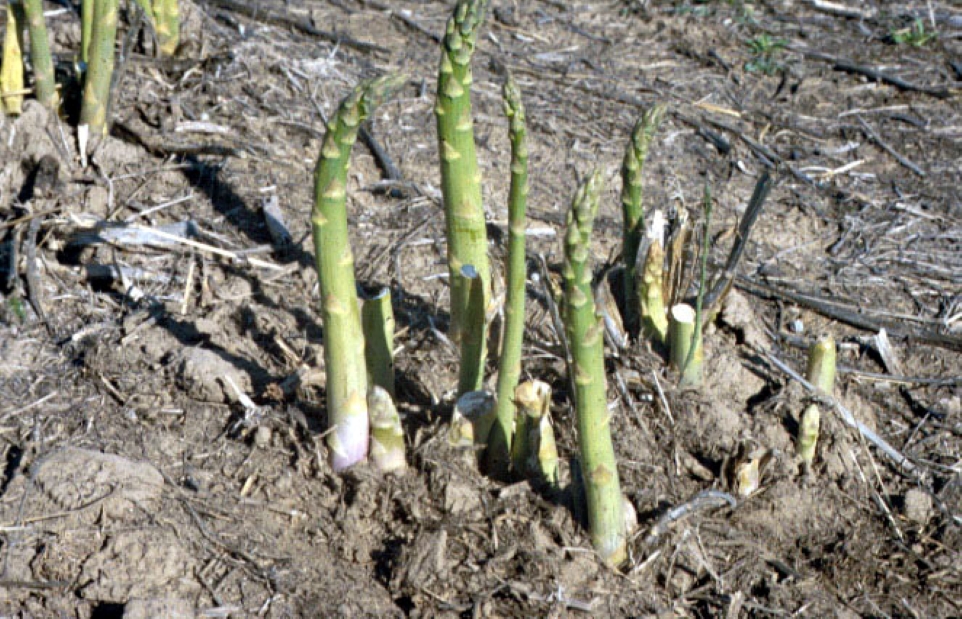Transplanting Perennial Vegetables
by Anthony Reardon, horticulture agent

When pondering crop rotation in the vegetable garden, moving perennial vegetables is not typically considered in the process. Asparagus, for example, can be produced in one location for up to 30 years, and it takes three initial years of growth to reach a state where it should begin being harvested. This prolonged timespan generally means that other amendment methods could benefit a gardener more than crop rotation. These practices can include using organic or inorganic pesticides to address overwintered insects and disease, using fertilizers to manage depleted nutrients, or simply incorporating new plants in new spots rather than moving current ones. Nevertheless, if one does wish to move their perennial crops, there are methods to follow for best success.
So long as the ground is workable, asparagus can be transplanted anytime during the dormant season. Be sure to dig up as much of the healthy, fleshy crown as possible. This will entail locating last year’s stems and, with a pitchfork, moving in a radius up to a foot around the periphery of the crown to dig it up, aiming to ensure as little root damage as possible in the process. Root health will be crucial when re-establishing the plant, so keeping those intact is vital. Out of the ground, this would also be the ideal time to divide the crowns into separate plants before replanting. While this will entail some root damage, many larger plants can be halved or quartered with a garden shovel, allotting extra chances at transplant success. It is best to detangle the clumps to minimize root damage, if possible, as you replant.
Replanted, it should be noted that asparagus divisions will likely take some time to re-establish and lack production during the first year or two of development. While this may be a less substantial yield decline than if one were to start over with a brand-new plant, the overall production decrease will likely still be evident. Be sure to supply adequate watering, soil drainage, and fertilization to support the healthiest and most vigorous plant growth possible.
Rhubarb, another perennial crown vegetable, can be divided in early spring and should follow the same establishment tips, supplying the adequate elements for essential plant health. Differing from asparagus, however, gardeners will want to dig up the rhubarb crowns and divide them according to their “eyes.” As this plant’s crown develops outward, the center will likely become unproductive, meaning the eye divisions will come from the edges of the crown. Since rhubarb utilizes a high amount of soil nutrients, moving it to a new location every few growing seasons will be beneficial for stalk production and is recommended.
If your energy is lacking and funds are less of an issue, remember the simplest solution to having your perennial vegetables produce is to incorporate newly acquired plants elsewhere. Regardless, remember that both scenarios will require a period of establishment.

